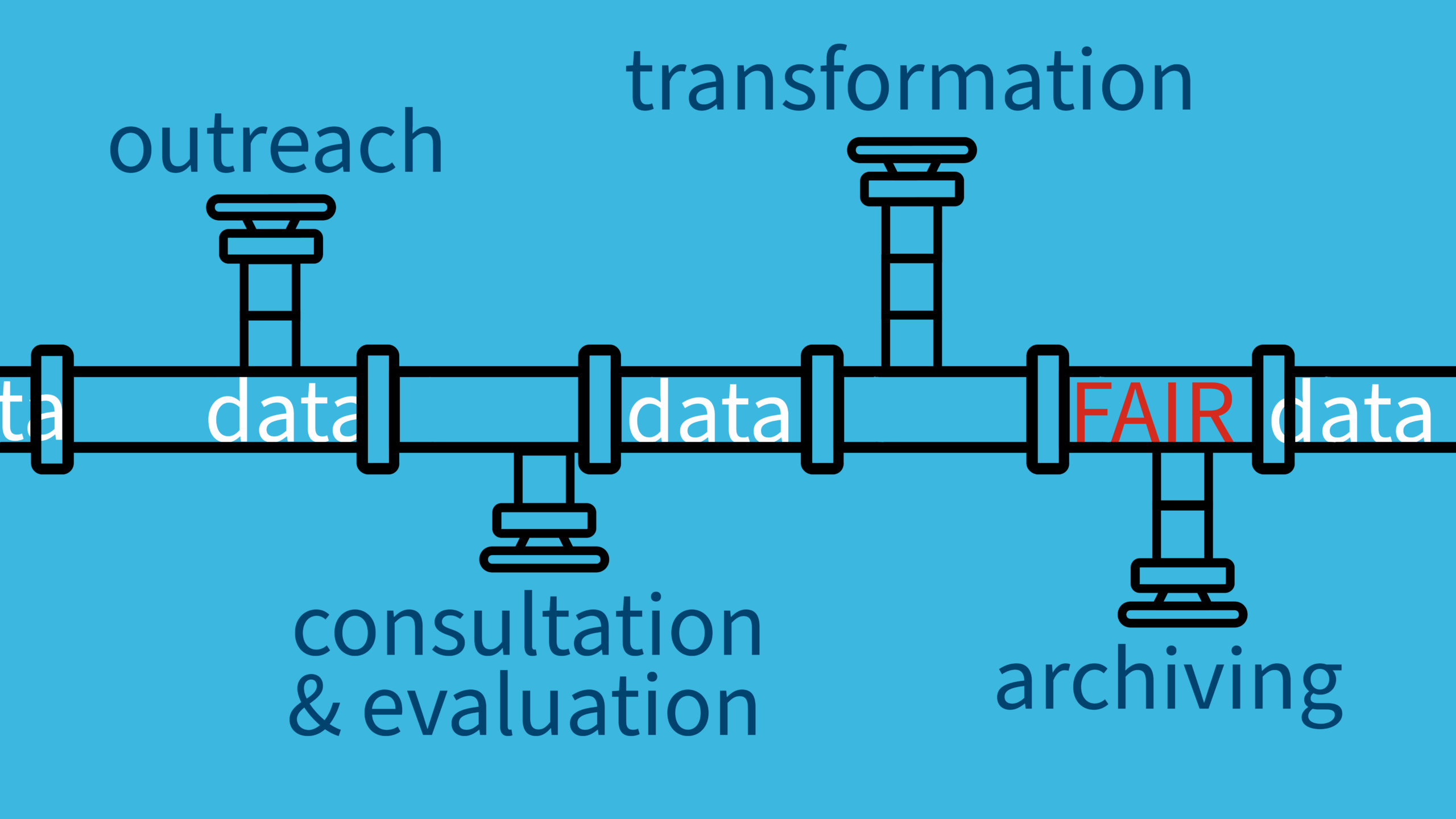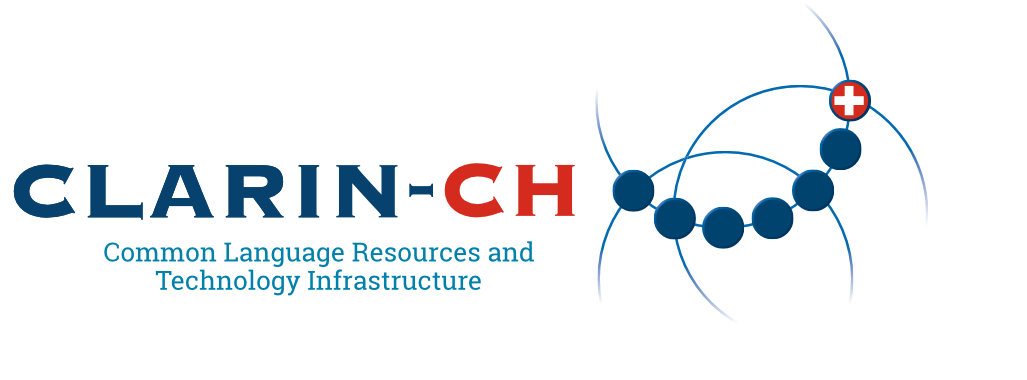The CLARIN-CH FAIRification pipeline
At CLARIN-CH, the Swiss national node of the European CLARIN research infrastructure, we are actively engaged in promoting the FAIR principles, making linguistic and language-based research data Findable, Accessible, Interoperable, and Reusable. Our FAIR-ification pipeline is a hands-on, researcher-centric approach that assists scholars in enhancing the long-term usability and visibility of their language data.
1. Outreach
Our engagement begins with personalised outreach. Researchers are contacted directly and invited to consider four options for making their data FAIR-compliant. These options are not mutually exclusive and include:

2. Consultation & evaluation
Once a researcher expresses interest, we schedule a consultation to review their data and determine the best dissemination pathway. We evaluate the state of the dataset, including format, completeness of metadata, and potential need for preprocessing. For example, preparing a dataset for the LCP may require transforming files into a specific format of a set of relational CSV files, a task that can be challenging for researchers unfamiliar with tools such as Python or R.
3. Transformation & archiving
Where needed, CLARIN-CH provides direct assistance in formatting, metadata enrichment, and the technical steps required for depositing. In some cases, especially for concluded projects where researchers lack the time or capacity, we manage the entire FAIRification process on their behalf to avoid the loss of a resource or tool.
Beyond one-on-one collaboration…
CLARIN-CH also supports the broader research community through thematic working groups, training activities, and extensive documentation. We facilitate interdisciplinary working groups on sensitive data management, learner corpora, and legal- ethical challenges, acting as intermediaries to support collaboration and project development. Our training activities cover topics from corpus querying and statistical methods to multimodal data processing. In addition, we maintain a comprehensive documentation platform that provides best practices across the entire data lifecycle, helping researchers see the full picture of sustainable and reusable data management.



